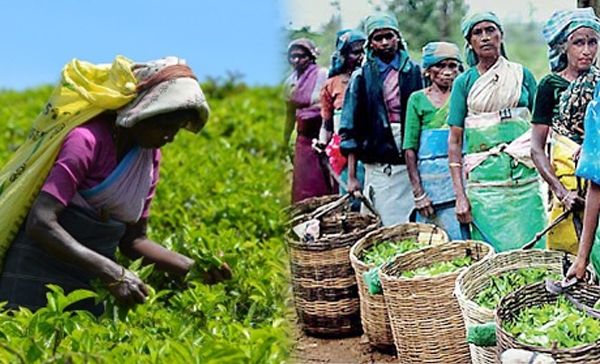Sri Lanka’s cabinet has approved the drafting of a law to create village communities in areas where people mainly descendants of former workers are resident in plantations.
“..[I]’t is expected to introduce a new law amalgamating estate houses and line rooms available in estate areas and creating villages for them,” according a proposal by President Ranil Wickremesinghe, a post cabinet statement.
Jeevan Thondaman, Minister of Water Supply and Estate Infrastructure Development, told Colombo’s Foreign Correspondents that about 176,000 families are expected to get 10 perch blocks of land under the plan.
About 4,777 hectares of land would be required for to give houses for the residents. Plantations collectively had about 205,000 hectares.
The land that is currently occupied by the people, including temples, schools and common areas gazetted as communities or villages.
There are about 115,000 workers employed in plantations, but a total of about 987,000 persons are living in the plantations, made up mostly descendants of former workers.
After privatization, under the Plantations Housing Development Trust, with funding from various sources has already built around 65,000 houses for workers, with 7 perch blocks contributed by the companies.
According to data released by the plantations, on average there are 2.1 employees per household.
However mainly the non-workers are still living in line rooms.
The lack of land and living conditions in line rooms, especially of non-workers has been a matter of concern for many years.
Throughout Sri Lanka’s history, persons from the Indian sub-continent had migrated to the country, displacing the original megalithic civilization of the island with an Indianized culture.
Specialist workers, including today tappers, elephant catchers as well as mercenary armies, war prisoners, traders have moved to the island and eventually settled in later centuries under ancient monarchs.
However, large numbers of the Indian workers who arrived during the British period, were denied formal citizenship after independence, through a citizenship law enacted by a national assembly in the style seen in European nation-states, though they were born in the island and some were returned to India.
The communities in the plantations, which were considered the responsibility of the companies, had their own schools and hospitals, which were not the direct responsibility of the line ministries concerned in the same way as the rest of the country.
The plantations land, once expropriated from the people and foreigners, in a move that is identified with and loss of foreign investment and post independent decline of the island compared to East Asia, which started off behind the island after World War II.
The ruling class is again threatening to re-expropriate the land after companies refused to implement state mandated wages.
Related Sri Lanka to expedite work on law to re-expropriate privatized plantations land
Sri Lanka’s real wages collapsed and inflation rocketed in 2022, after the state money monopoly, mis-managed its note issue in the pursuit of aggressive macro-economic policy.


